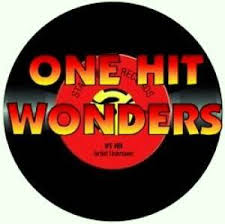
No, It’s Not Your Imagination. The Number of One-Hit-Wonders Is Up. Blame Social Media
When the Grammys come around (or the MTV Music Video Awards or the People’s Choice Awards or the American Music Awards or the MMVAs), try to remember who wins what and who appears on the show. Chances are that the world will have forgotten 90% of them by the following year.
The number of one-hit-wonders is on the rise. With the demise of the album and a la carte music purchasing, we’re back to where we were prior to about 1965. It’s again all about the song and not the performer. Once the population tires of the song it and the performer are tossed in the dumpster.
The Conversation picks up the, er, conversation:
In early September 1994, Whigfield released her single Saturday Night. It appeared from nowhere and echoed everywhere. As songs go it seemed quite innocuous. But its catchy wafer-thin sound actually represented a watershed moment in music chart history.
When it displaced Wet Wet Wet’s 15-week stay at the top with Love is All Around, it became the first debut single to go straight into the charts at number one. The UK singles sales chart had originally launched in 1952, so it took more than 40 years of weekly charts for this to happen. For 40 years, artists had been trying to build momentum and use broadcast media outlets and publicity drives to push their songs up the charts. But Whigfield didn’t need to.
Given this history, it might be surprising to discover in 2014 as many as 14 different acts achieved a number one debut single. So we had 40 years without a number one debut single, years that saw releases from a wide array of cultural luminaries – and now we have 14 in a single year.
So where did “the year of the debut chart smash” come from? Clearly in part the evolving way in which music is consumed. Chart rules have changed over recent years in order to accommodate changes in music formats and to make the charts representative of the actual music being consumed. In 2006 music downloads were included in the charts for the first time, enabling Gnarls Barkley’s single Crazy to be the first single to reach number one on downloads alone (the CD format was released after it had first charted). And then in 2014, streamed music began to be included in the calculation of chart position, 100 streams of a song counting as a single sale. All of this leads to changes in the outcomes of the charts.


